How does Fort Wayne support single moms and their babies? Ask St. Joe Community Health Foundation
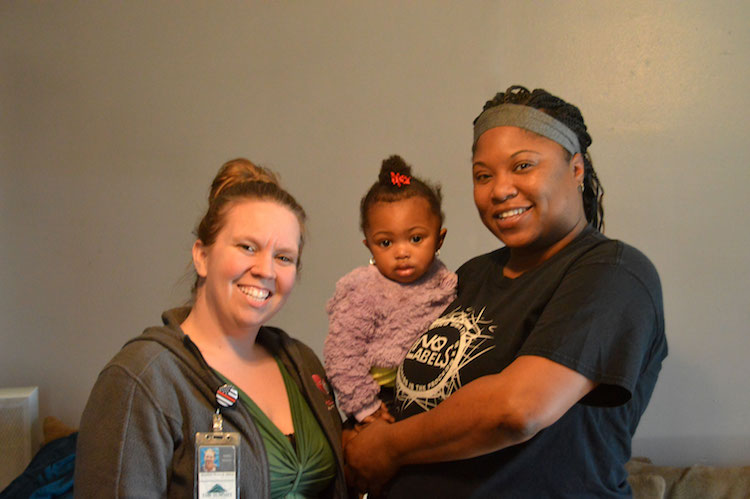
Originally Published on inputfortwayne.com
Shannon Winder was working part-time when she realized she was pregnant. The thought of a baby was exciting and shocking because she hadn’t thought she could physically bear children. But she knew that single motherhood would be a struggle.
Her fast food wages paid little more than the rent. Meals came from local food pantries. She couldn’t stop smoking. And she knew nothing about pregnancy—let alone parenthood.
Then she heard about Healthier Moms and Babies (HMB), a Fort Wayne agency that provides health education and case management services to low-income women in Allen County. When she got in touch, she found caseworkers who walked alongside her through her pregnancy and beyond.
“They actually teach you the better ways in life to do things, not to give up,” says Winder, who is now 37.
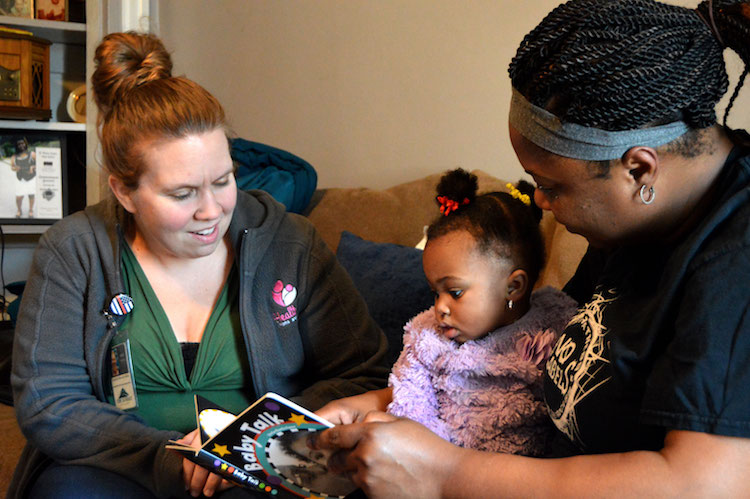
Today, her story echoes the voices of thousands of single mothers across Allen County—many of whom are drowning in a deluge of social, economic, and health problems. HMB was Winder’s saving grace, but other organizations are just as crucial to the effort. They include the Women’s Care Center, A Hope Center, A Mother’s Hope, Catholic Charities, Young Lives, Lutheran Social Services, and Parkview’s Community Health Worker program, just to name a few.
Funding for these nonprofits flows from many revenue streams, including the St. Joseph Community Health Foundation, a significant provider of grant support to pregnant women and their babies, says Meg Distler, the Foundation’s Executive Director. The Foundation’s aim is to continue the work of its sponsor, the Poor Handmaids of Jesus Christ, who have helped struggling women and children in Allen County since 1868.
“Our goal has always been to extend compassion and support, so that new families, mothers, and babies in Allen County can live in safe, stable, and nurturing environments,” Distler says.
Here’s how the organization’s behind-the-scenes work is playing out in Allen County.
Filling the gaps
According to the Indiana State Department of Health, 43 percent of 5,000-plus mothers in Allen County giving birth in 2015 and 2016 were unmarried.
“The fact that they’re alone makes them vulnerable for lots of reasons,” says Anne Koehl, who oversees three Women’s Care Center locations in Fort Wayne.
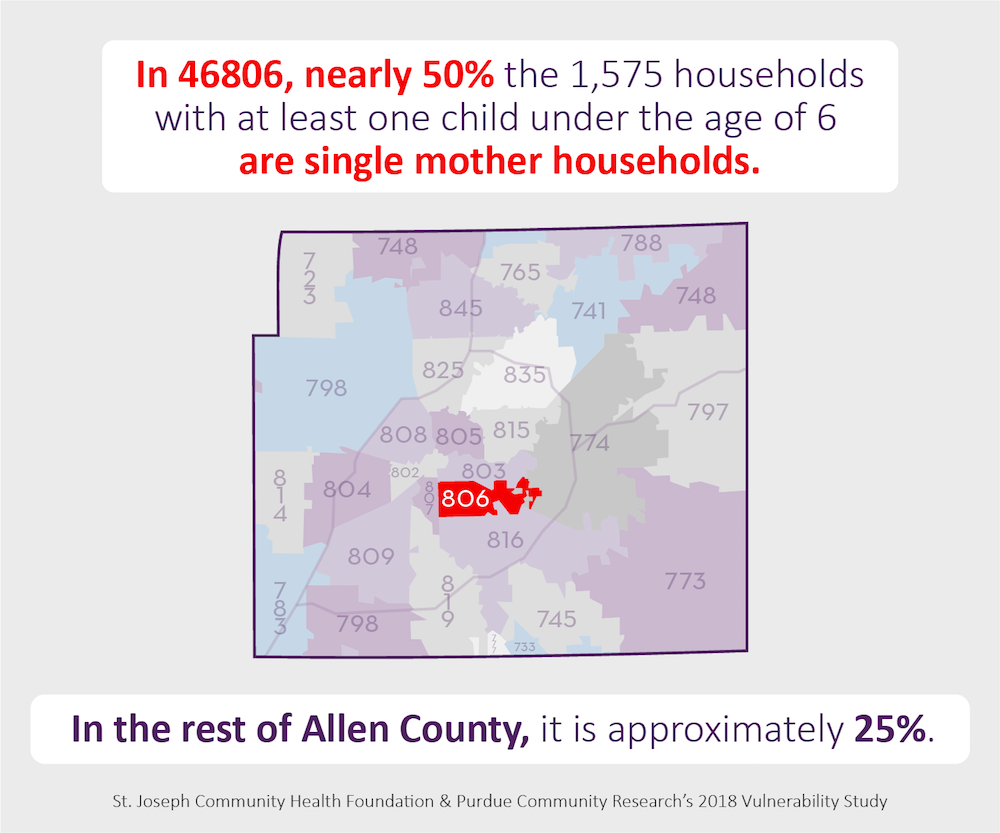
These centers, which served 2,500 women in 2018, provide free pregnancy tests, instructional classes, clothes, and diapers to new moms at no cost. Most clients are between the ages of 13-46, single, and lacking the emotional and financial benefits of a two-income household. In other words, they need help, Koehl says.
She describes a young client who recently dropped out of high school and smokes cigarettes. To help this client, Koehl developed a plan for assistance, including several referrals. A local Women Infants and Children (WIC) office or HMB could help through their smoking cessation programs. Brightpoint, another local organization, could help the client apply for Medicaid. Koehl also signed her up for a future ultrasound at the Women’s Care Center and told her about birth prep and parenting classes offered there.
The client was “very scared,” Koehl says. “She doesn’t see a future with the father,” she notes.
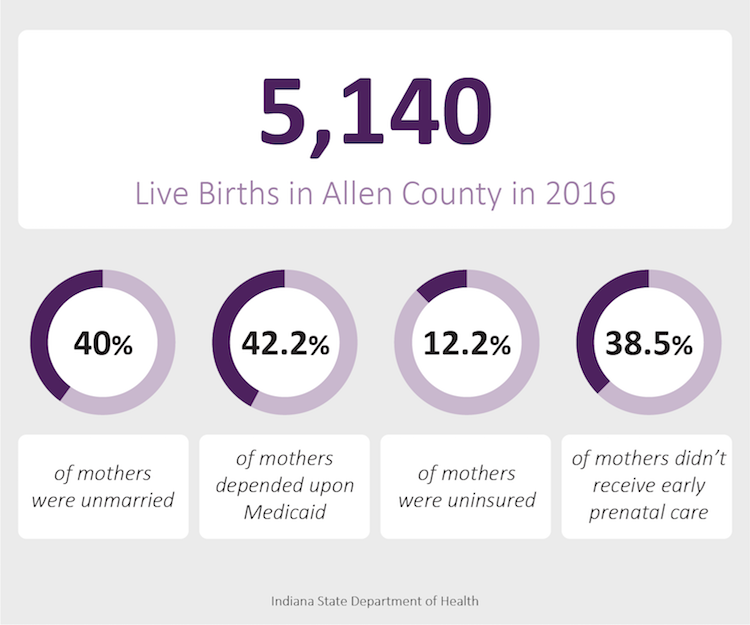
Overall, the Women’s Care Center helps new moms navigate the web of the city’s services in a stressful time of their lives. Koehl says this new client’s intake session gave her hope, exposing her to a network of local people ready to help her, and she is not alone.
In more dire situations, pregnant teens and women have no place to live. Depending on the circumstances, Koehl might refer them to A Mother’s Hope shelter. This shelter houses up to eight homeless pregnant women and their babies at a time.
Local organizations that support pregnant women often interact through the Prenatal Infant Care (PIC) Network. The St. Joe Foundation established this network in 2015, partnering with HMB to host quarterly luncheons to connect care providers with potential partners and local professionals through presentations and informative panel discussions.
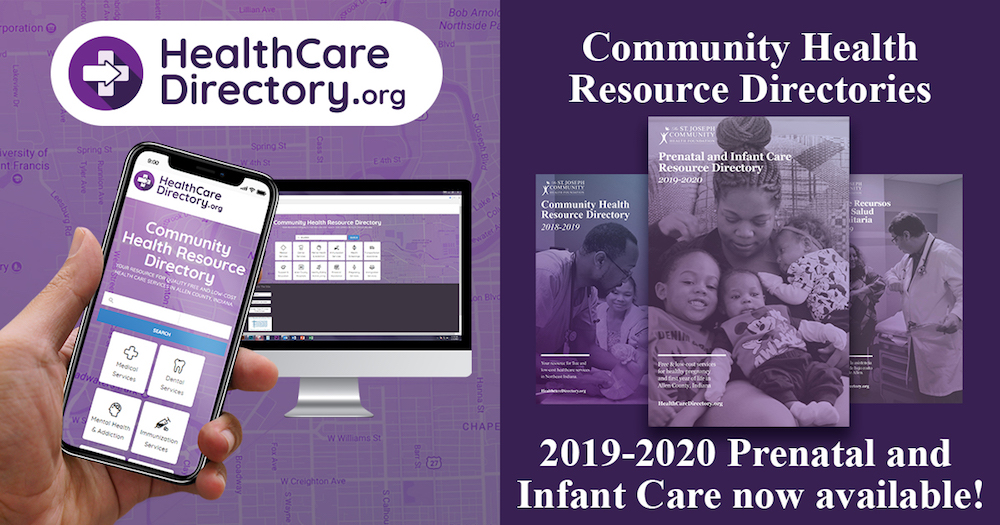
Koehl feels good about the system of services in Fort Wayne. Her counterparts in different states are often surprised by the opportunities available to women here.
“I can see that we’re really blessed,” she says.
A lasting impact
Winder recently sat comfortably in a simple home she shares with a relative on the city’s south side. Sa’nia, now one-year-old, is quiet in her lap, staring curiously at anyone who walks in the room. She is a miracle in more ways than one, Winder says.
Not long before, Sa’nia was stuffing cereal in her mouth and almost choked, but her mother didn’t panic. HMB had taught her what to do. She sat Sa’nia upright and applied light pats to her back, forcing the cereal up from her throat. Caseworkers also taught Winder how to breastfeed and helped her work through post-partum depression and the stress of her baby’s intermittent eating and sleeping schedule.
The best part, Winder says: “You had someone to talk to, who could relate to you on things you needed help on.”
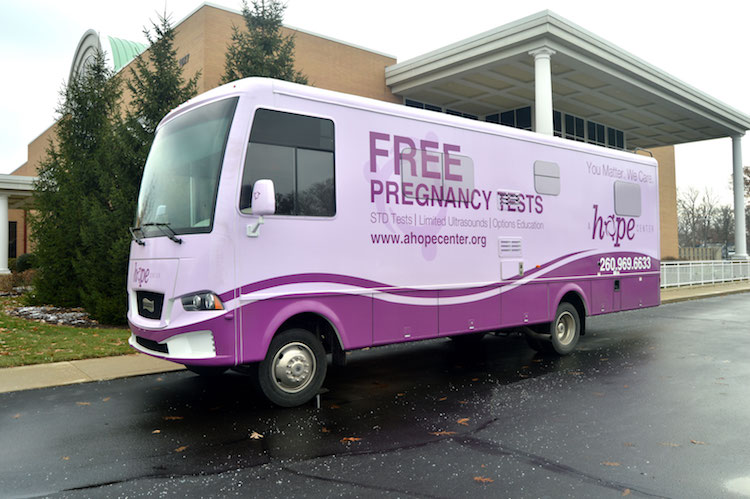
Looking back, Winder considers her story to be one of growth.
“There is no shame,” she says.
She’s found a new job at a local McDonald’s and worked her way up to becoming the manager. Another incentive-based program has helped her stop smoking. She enjoys her life now, she says.
Then she pauses and looks at Sa’nia, “especially with her.”
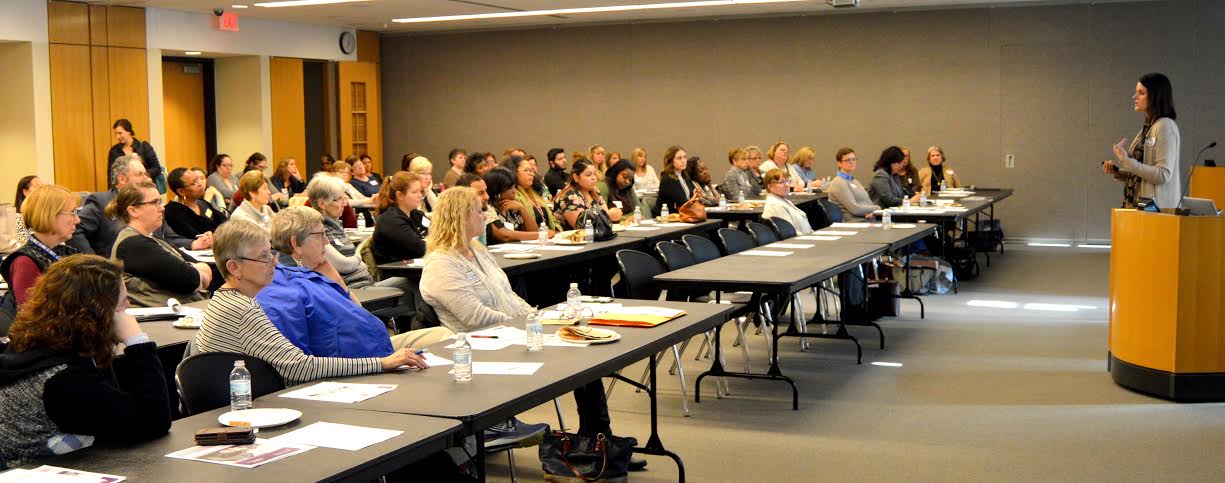
The Prenatal & Infant Care Network facilitated by St. Joe Foundation meets quarterly bringing together local care providers from over 60 different agencies focused on at-risk pregnant women, infants, and new families to improve referrals, collaboration, and information to support these new families. Anyone in the community is welcome.
